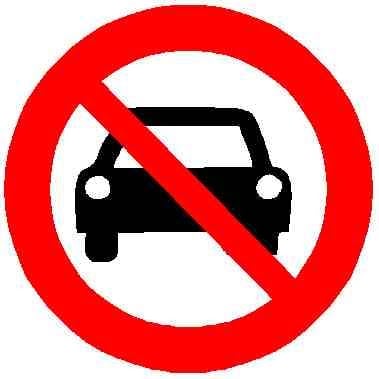My original question was “How do we disincentivize the purchase of pickup trucks/SUVs” but then I thought it would be better to approach the larger problem of car dependency and car ownership. One option is, of course, to create public transit infrastructure and improve it where it already exist. This, however, doesn’t change the fact that some will still choose to drive. What would be the best ways to discourage people from owning personal cars?


Yes, but you must also do things like add tolls, rush surcharges, etc to actually get the car usage down.
Simply making the alternative better alone won’t make the majority drop the comfort of their own car because it will never be as good as driving yourself.
Pretty sure my second paragraph, starting with the word “after” (that word does a LOT of lifting) addresses that aspect.
It usually happens at the same time, you increase cost. Then you use that cost directly to build and maintain the public infrastructure required.
I’m aware of that being how it usually happens. The problem is, relying on that leaves a lot of people out to dry. Spend a bit now, so that we can make the transition smoother and more likely to happen at all.
I agree, I’m also colored by living in Norway where we are way ahead of America in this process. It’s been very gradual indeed.
But it is fair that people using the roads pay for them
Sure, I can agree with the people using them paying for the roads. I just don’t want to see it go from what we have currently to something much MUCH worse for your average individual, which if we do these things without setting up safety nets first, they will be.
no, you don’t. that’s all a poor tax, again.
and remember: most of the people who need cars (for mobility reasons) are among the poorest.
So taxing people through tolls and such is just punishing the disabled. ie ableist.
You do if you actually want the traffic to go down and you want to afford the public transportation infrastructure that will be required.
in short, you’re not good at math and have no idea the cost of public works if you think they’re on the same scale.
(also, it doesn’t address the ableism)